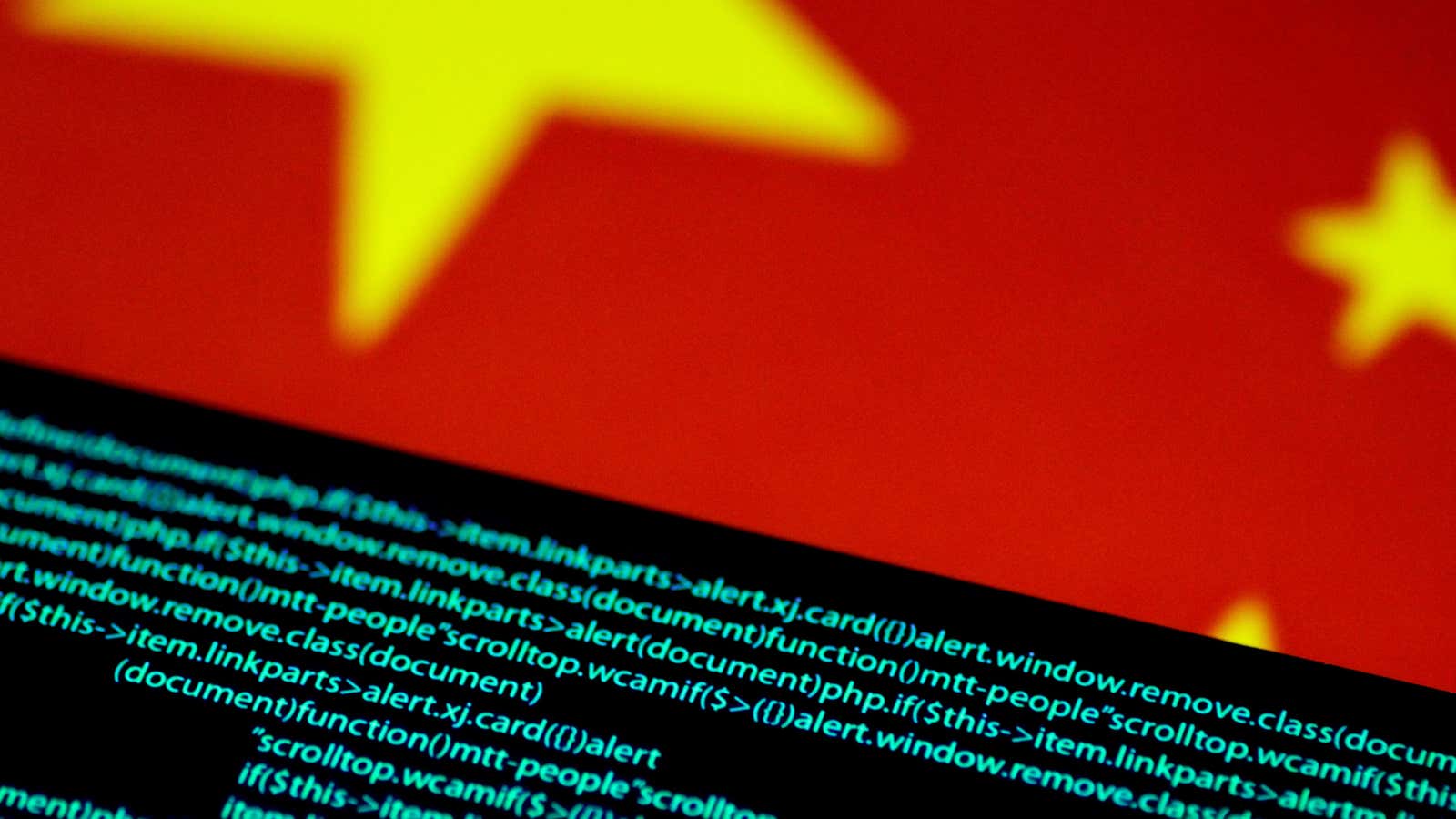Even China’s internet giants, it appears, don’t understand the nation’s cybersecurity law well enough.
Today, the Cyberspace Administration of China (CAC), which oversees internet governance, issued a notice saying major social media platforms are under investigation for violating the Cybersecurity Law of the People’s Republic of China, which went into effect in June. Besides dictating where companies can store data, the law allows authorities to prosecute anyone posting information (paywall) that the government deems unsavory.
Social media users have spread messages that touch upon violence, terrorism, pornography, and rumors and thereby “endanger national security, public security, and social order,” according to CAC offices in Beijing and the southern Guangdong province. The platforms hosting such messages had failed in their duty to manage the prohibited information, the CAC said in the notice (link in Chinese).
The platforms in question include Tencent’s WeChat, Baidu’s Tieba, and Sina’s Weibo. Between them they have well over a billion users, including nearly 940 million for WeChat and over 360 million for Weibo.
The notice didn’t elaborate on what, specifically, led to the probes. But since Beijing enacted the cybersecurity law, those platforms have seen a variety of government crackdowns and new company regulations.
In June the CAC’s Guangdong office ordered the closing of over two dozen WeChat accounts that had been producing entertainment content, including music and movie commentaries. It said such sites should obey the cybersecurity law and ensure the “correct direction of public opinion (link in Chinese).” That same month, Tieba, home to millions of discussions on topics ranging from TV dramas to political affairs, asked its users to register with real names, also citing the law.
Neither Sina nor Tencent responded to Quartz’s request for comments. Baidu did reply, saying it would cooperate actively with the related government entities to rectify Tieba, including “enhancing investigation strength” to fend off “bad information.”
It’s too early to draw major conclusions about the probes. But by targeting the country’s biggest players, the CAC also sends a message to smaller companies that “they too should take the new cybersecurity law seriously,” notes Fergus Ryan, an internet analyst at the Australian Strategic Policy Institute.
As for users, many are already worried about the new probes. Weibo user Ruizhi Chengnan, including a screenshot of the CAC notice, said in a post (link in Chinese), “In a country with centralized political power, it’s a false statement to talk about freedom of speech.”
